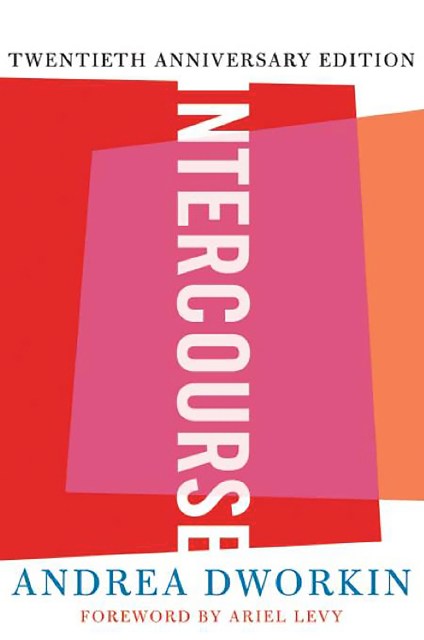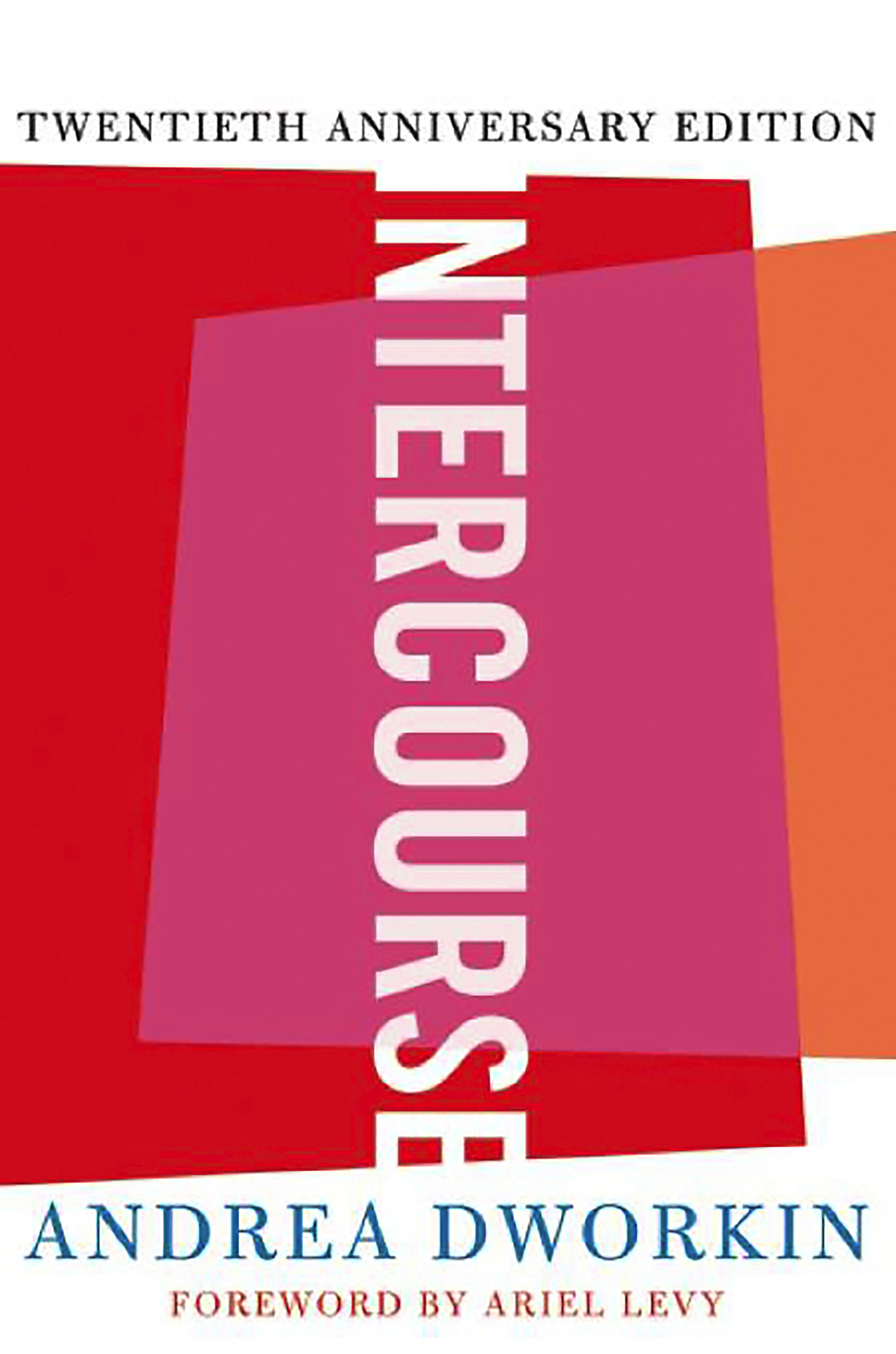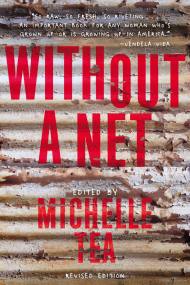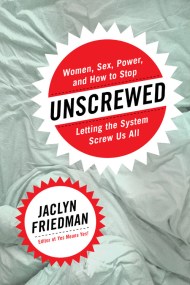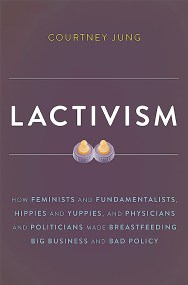By clicking “Accept,” you agree to the use of cookies and similar technologies on your device as set forth in our Cookie Policy and our Privacy Policy. Please note that certain cookies are essential for this website to function properly and do not require user consent to be deployed.
Intercourse
Contributors
Formats and Prices
- On Sale
- Nov 7, 2006
- Page Count
- 352 pages
- Publisher
- Basic Books
- ISBN-13
- 9780465017522
Price
$19.99Price
$25.99 CADFormat
Format:
- Trade Paperback $19.99 $25.99 CAD
- ebook $12.99 $16.99 CAD
This item is a preorder. Your payment method will be charged immediately, and the product is expected to ship on or around November 7, 2006. This date is subject to change due to shipping delays beyond our control.
Buy from Other Retailers:
In Intercourse, Dworkin argues that in a male supremacist society, sex between men and women constitutes a central part of women’s subordination to men. (This argument was quickly-and falsely-simplified to “all sex is rape” in the public arena, adding fire to Dworkin’s already radical persona.) In her introduction to this edition of Intercourse, Ariel Levy, the author of Female Chauvinist Pigs, discusses the circumstances of Dworkin’s untimely death in the spring of 2005, and the enormous impact of her life and work. Dworkin’s argument, she points out, is the stickiest question of feminism: Can a woman fight the power when he shares her bed?
Andrea Dworkin, once called “Feminism’s Malcolm X,” has been worshipped, reviled, criticized, and analyzed-but never ignored. The power of her writing, the passion of her ideals, and the ferocity of her intellect have spurred the arguments and activism of two generations of feminists.
